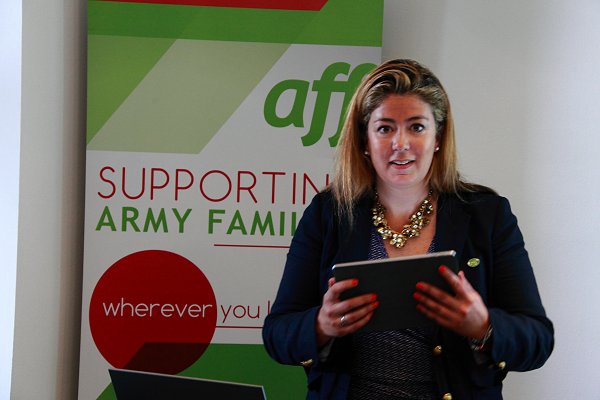Breaking down the barriers to employment for military spouses and partners
 Nearly one in five military spouses or partners want to work but can’t get a job because of the unique challenges presented by military life, according to a new study by the University of Warwick’s Institute for Employment Research and QinetiQ for the Army Families Federation.
Nearly one in five military spouses or partners want to work but can’t get a job because of the unique challenges presented by military life, according to a new study by the University of Warwick’s Institute for Employment Research and QinetiQ for the Army Families Federation.
Problems reported by military spouses and partners included the difficulties of arranging childcare when frequent moves make it difficult to develop a support network and family may be a long way away; negative attitudes from some employers who perceive military spouses as less reliable than non-military applicants; qualifications not being recognised in new locations; visa restrictions on working if posted overseas; and CVs showing a large number of short-term roles because of frequent moves.
Commonwealth spouses and parents of younger children were particularly affected.
The study found that:
- 69 per cent of spouses/partners had moved up to five times since becoming a military family due to their partner’s military commitments. One in ten had moved eleven times or more.
- 63 per cent of spouses/partners had changed their career to cope with the military lifestyle. Military spouses and partners were more likely to look for ‘portable’ jobs such as teaching, nursing and childminding.
- 45 per cent of spouses/partners had experienced discrimination from employers when applying for jobs because their partner was in the military. However, 30 per cent of employers in the survey said that military spouse/partners show resilience and determination in their work roles.
Professor Clare Lyonette, who led the IER team, said: “Research over many years has shown that women with young children often face barriers to employment, including the costs of formal childcare, long full-time working hours in the UK and prevailing attitudes towards gender roles which mean that the majority of childcare and domestic work is undertaken by women.
“This new study has demonstrated that military spouses and partners - the majority of whom are women - face additional constraints because of frequent moves, which create difficulties in staying on the career ladder, and in taking up training opportunities; negative employer perceptions; and a prevailing military culture which sees spouses/partners as ‘dependents’.”
The report sets out a series of recommendations for tackling these barriers, making the case that supporting spouses and partners into work can help retain service personnel.
The recommendations are addressed to the MOD, third sector support organisations and employers, and spouses and partners themselves, and include a one-stop online jobs platform for job and training opportunities, and the provision of subsidised childcare for military families.
Sara Baade, Chief Executive, Army Families Federation said: “We were delighted to have been given LIBOR funding to explore the difficult employment situation that many military partners find themselves in, and very grateful for the excellent job that the Warwick Institute for Employment Research and QinetiQ have in giving this report the impetus of academically driven evidence.
“This was needed to help us take the case for further investigation into the military partner employment issue to policy makers and stakeholders, so they can see what is needed to help improve the situation, and hopefully work with us to implement some of the recommendations in the report.”
20 June 2018
PHOTO: AFF Chief Executive Sara Baade presents the findings from the employment research study to MPs, forces representatives and other stakeholders.
NOTES: The Institute for Employment Research at the University of Warwick (IER), and QinetiQ, were commissioned by Army Families Federation to analyse the factors shaping the employment of military spouses/partners and to formulate recommendations for effective support services. The research involved five separate phases of data collection, undertaken between October 2017 and April 2018. Data was collected from an online survey with almost 1500 spouses/partners from all 3 Services, 32 telephone interviews, an online survey with 38 employers and 14 stakeholder interviews.
CONTACT
Sheila Kiggins
Media Relations Manager
S.Kiggins@warwick.ac.uk
02476 150423
07876 218166
